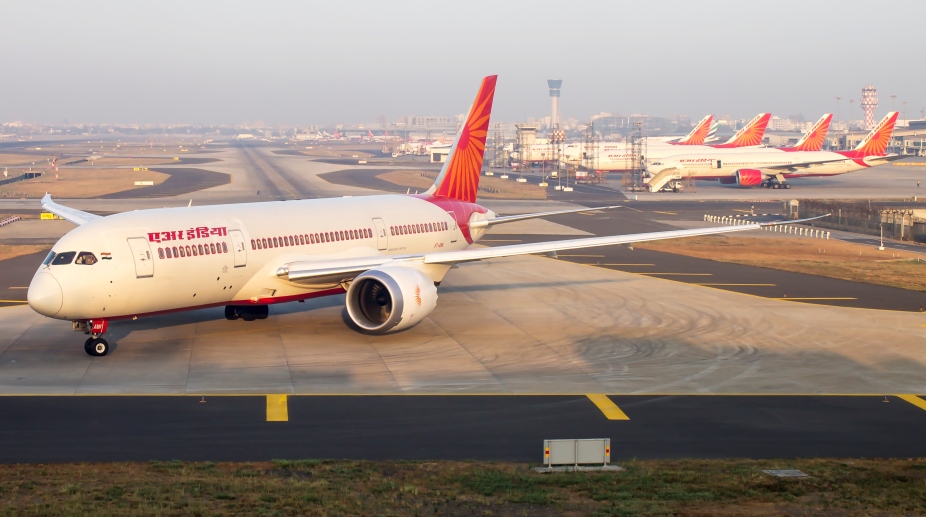The Government of India Wednesday unveiled plans to sell up to 76 per cent Air India stake and transfer the management control to private players, starting the ambitious strategic disinvestment process for the debt-laden national carrier.
Coming out with a detailed preliminary information memorandum on the stake sale, the Ministry of Civil Aviation said the proposed disinvestment would include profit-making Air India Express and joint venture AIATSL. The latter is an equal joint venture between the national carrier and Singapore-based SATS Ltd.
Advertisement
While the government would retain 24 per cent stake in the national carrier, the winning bidder would be required to stay invested in the airline for at least three years.
MUST READ | Air India strategic disinvestment process: 10 key takeaways
Starting off the disinvestment exercise — a major initiative of the NDA government — Expression of Interest (EoI) has been sought from various entities, including foreign airlines.
The last date for submission of EoI is May 14 and intimation to the qualified interest bidders would be made on May 28.
Bidding can be done as a single player or as part of a consortium. The bidder should have a minimum net worth of Rs 5,000 crore and the requirement is subject to certain conditions depending on the class of entities.
Among others, the ministry has said each consortium member should have positive profit after tax in at least three of the immediately preceding five financial years from the EoI deadline.
“However, if the member of the consortium is a scheduled airline operator in India, the condition to meet positive profit after tax shall not apply to such member provided shareholding of such member is restricted to maximum of 51 per cent of paid up equity share capital of the consortium (special purpose vehicle). In case of a foreign airline (ie airline which is not a scheduled airline operator in India), the requirement to meet positive profit after tax requirement shall remain applicable,” it said.
Bids by management and employees of companies participating directly or by forming a consortium would be considered subject to guidelines issued by the Department of Investment and Public Asset Management (DIPAM).
The consortium can be along with a bank, venture capitalist, a financial institution or fund.
Four other subsidiaries of the airline — AIESL (Air India Engineering Services Ltd), AIATSL (Air India Air Transport Services Ltd), HCI (Hotel Corporation of India) and AASL (Airline Allied Services Ltd) — would be hived off through demerger or any other appropriate mechanisms, as per the memorandum.
AIESL mainly provides maintenance and overhaul of engines while AIATSL is into ground and cargo handling services.
HCI owns and operates two hotels in the national capital and Srinagar. AASL is the regional arm of Air India and flies to Tier II and III cities.
“Air India has interests in other entities (Air India Engineering Services, Air India Air Transport Services, Airline Allied Services and Hotel Corporation of India) which are in the process of being transferred to a separate SPV and will not be a part of the proposed transaction,” the memorandum said.
Air India had a fleet of 115 aircraft as of December 2017 and serves around 39 international destinations.
As on December 1, 2017, the airline had 11,214 permanent employees and 2,913 on contract, among others.
Among other conditions, the selected bidder would be required to “lock-in its entire shareholding in Air India and in the special purpose vehicle (in case investment in AI is made through a special purpose vehicle by a consortium or otherwise), up to the expiry of 3rd Anniversary of the consummation of the proposed transaction”.
During this period, the bidder would also not be allowed to cede the management control.
Central Public Sector Enterprises (CPSEs) or Central Government Owned Cooperative Societies would not be allowed to bid for Air India unless a proposal is brought up for consideration of the Core Group of Secretaries on Disinvestment by the government, the memorandum said.
Ernst & Young LLP India has been appointed as transaction adviser for the strategic disinvestment process.
In June 2017, the Cabinet Committee on Economic Affairs (CCEA) gave in-principle nod to the strategic disinvestment of the airline, which has a debt burden of over Rs 50,000 crore.
Subsequent to the decision, the Air India Specific Alternative Mechanism (AISAM), headed by Finance Minister Arun Jaitley, was set up to decide on specific issues.
The national carrier is staying afloat on taxpayers’ money under the turnaround plan approved by the previous UPA government in 2012.











